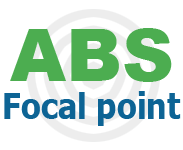
Dutch legislation on Access and Benefit-Sharing
In 2014, the European Union adopted a regulation (EU Regulation 511/2014) to implement the Nagoya Protocol in the EU. The regulation applies to all use of genetic resources in the EU, and includes obligations on users of genetic resources in the EU. For the implementation of the Nagoya Protocol and EU Regulation 511/2014 in the Netherlands, the Nagoya Protocol (Implementation) Act came into force on 23 April 2016. The legislation for implementation of the Nagoya Protocol in the Netherlands does not regulate access to genetic resources in the Netherlands. This means that you do not need PIC to access genetic resources in the Netherlands.
For the implementation of the Nagoya Protocol and EU Regulation 511/2014 in the Netherlands, the Nagoya Protocol (Implementation) Act was enacted. The Nagoya Protocol (Implementation) Act contains definitions (Article 1), and deals with the implementation (Articles 2 and 3), the designation of competent authorities (Article 4), sanctions and other measures (Articles 5, 6, 7 and 8), the entry into force (Article 9), and the name of the law (Article 10).
The explanatory memorandum accompanying the Nagoya Protocol (Implementation) Act starts with an introduction (paragraph 1), addresses the background to the Nagoya Protocol (paragraph 2), explains the contents of the Nagoya Protocol (paragraph 3), and discusses the relationship to other conventions (paragraph 4). Subsequently, it deals with the contents of the European ABS Regulation (paragraph 5), and its implementation in the Netherlands (paragraph 6). The relationship to other legislation (paragraph 7) and the burden (paragraph 8) are discussed, and the memorandum concludes with an explanation of each individual article of the Nagoya Protocol (Implementation) Act (paragraph 9). In the annex, the relationships between the articles of the Nagoya Protocol, the European ABS Regulation and the Nagoya Protocol (Implementation) Act are presented in tables.
Article 1 of the Regulation of the Minister for Agriculture of 31 March 2016, No. WJZ/15145152, laying down provisions in implementation of the Nagoya Protocol Implementation Act (Regulation in implementation of the Nagoya Protocol Implementation Act) designates the articles of EU Regulation 511/2014 and EU Implementing Regulation 2015/1866 which can be enforced under criminal law. These articles concern the compliance of users of genetic resources with the due diligence requirements and its enforcement. Any conduct in contravention of the provisions is designated as an economic offence. In Article 2, it is stated that collection holders will submit a request for inclusion of a collection in the register of collections in the Union (as referred to in Article 5, paragraph 2, of EU Regulation 511/2014) to the Minister of Economic Affairs. This regulation came into force on 23 April 2016.
In the Decree of the Minister for Agriculture of 31 March 2016, No. WJZ/15163191, designating regulators of and National Contact Point for the Nagoya Protocol Implementation Act, the officials of the Netherlands Food and Consumer Product Safety Authority (NVWA) are charged with monitoring compliance with what is provided by or pursuant to the Nagoya Protocol (Implementation) Act. The Centre for Genetic Resources, the Netherlands (CGN) is designated as the national focal point for Access and Benefit-Sharing referred to in Article 4, first paragraph, of the Nagoya Protocol (Implementation) Act.
With the publication of the Decree of 8 April 2016 laying down the date of entry into force of the Nagoya Protocol (Implementation) Act, the Nagoya Protocol (Implementation) Act came into force on 23 April 2016.
The legislation for implementation of the Nagoya Protocol in the Netherlands does not regulate access to genetic resources, as the Dutch government considers it unnecessary to exercise its sovereignty regarding access to genetic resources occurring in the Netherlands in national legislation (section 6.2.1 of the explanatory memorandum accompanying the Nagoya Protocol (Implementation) Act). This means that you do not need PIC to access genetic resources in the Netherlands. However, access may be restricted, by means of legislation and regulatory requirements in the area of species protection, territorial protection, and animal and plant diseases. In such cases, permission to collect genetic resources must be obtained from the landowner, be it a private or public. Environmental impact rules may also apply. Genetic resources in farms or in gardens are held privately and hence transfer of these genetic resources in any form requires the consent of the owner.
Collection holders may set conditions (e.g. in the form of a Material Transfer Agreement), which are often dependent on the conditions under which the collections themselves acquired the materials.
